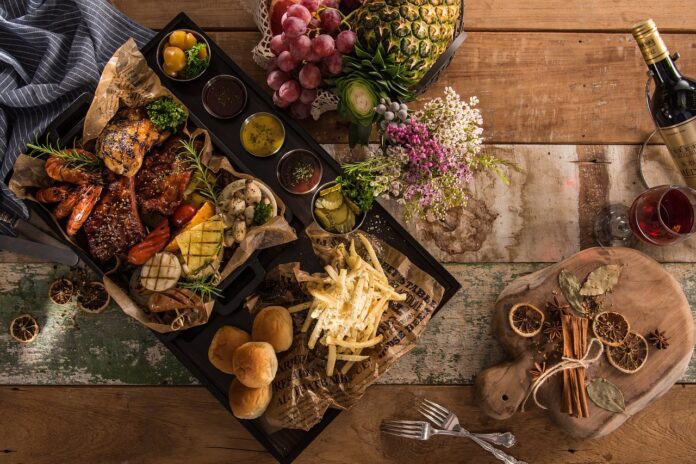Food always has important cultural and historical meanings, but sometimes we forget about them because we are so busy and have such a routine that eating seems more like a necessity than a pleasure or a ritual. But it’s important to remember that the food we eat can have cultural meanings, especially when your luck depends on it.
So, around the New Year, when superstitions and rituals are especially important because everyone wants to have good luck in the coming year, we remember what foods some ancient cultures thought were bad luck. So, in addition to being careful about what color underwear you wear today, doing meditations and rituals to close cycles, or even walking around the block with suitcases, you might also want to avoid these foods, which some ancient cultures believed brought bad luck.
Lobster and crustaceans
It’s best to avoid eating lobster on New Year’s Eve because crustaceans move backwards, which is thought to be bad luck. This belief comes from Austria and Eastern Europe, where the word “backwards” can mean trouble in the coming year. People also think that shrimp and crabs are unlucky because they don’t move forward.
Scavenger fish
The same tradition says that you can eat fish, but not crustaceans. But it’s best to stay away from fish that eat trash at the bottom of the sea or fish that scavenge, because they can mean bad luck and trouble getting what you want. So you’ll have to wait to eat those fish and shellfish that can help you get laid.
Chickens and birds
People believe that eating birds like chickens and turkeys at the beginning of the year can make it hard to find food because these birds look for food on the ground.
White things
Chinese tradition says that white foods bring bad luck on New Year’s Day and colored foods bring good luck. And it’s because, in the Chinese worldview, colors like green and gold represent wealth and prosperity, and orange represents success and money. But white represents death and mourning, which is why people wear it to funerals, so it’s best to avoid it on this date.
Short spaghetti
In Japanese culture, long noodles are a sign of longevity, health, toughness, and luck, all of which are things we all want to start the new year with. On the other hand, short noodles are a sign of bad luck and a shorter life. Due to the same tradition, you shouldn’t cut the noodles in half with a fork or your teeth. Instead, you should eat them whole, as you’ve probably seen in some Japanese movies.
Dishes that have parsley
Since 1600, parsley has been thought to bring bad luck on New Year’s Eve. For this reason, it is not a good idea to use it as the main ingredient in dishes for that night. And the reason is that in Greek culture, there is a story about an army that was on its way to a battle when it saw donkeys covered in parsley. The army took this as a sign that they were about to die. Since then, people in Greece have thought of parsley as being related to death. It has been used to make wreaths for funerals and put on graves.



















![10 Countries With the Best Healthcare in the World [Statistical Analysis] Countries With the Best Healthcare in the World](https://articleify.com/wp-content/uploads/2025/07/Countries-With-the-Best-Healthcare-in-the-World-1-150x150.jpg)









